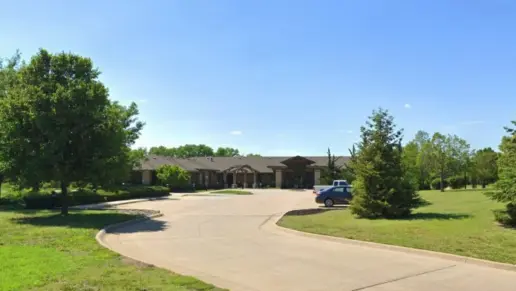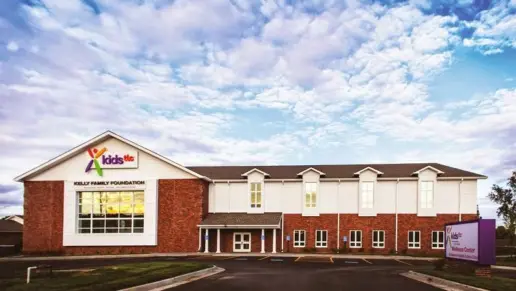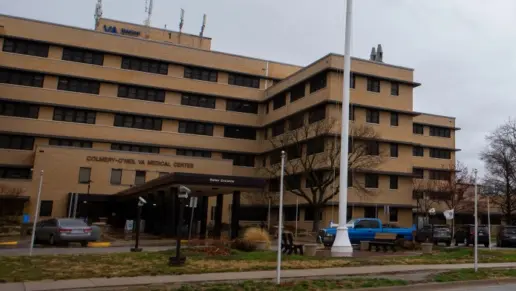So unprofessional, they are only after your money. Counselors judge you before they listen to you. Any assessment they make you is what they think about you, not what you discuss together in therapy.
About Preferred Family Healthcare – Wichita
Preferred Family Healthcare is a Wichita, Kansas, alcohol and drug rehab with medical detox, inpatient rehab, and intensive outpatient programs (IOPs). Adults, youth, and families voluntarily seeking treatment or court ordered can access alcohol, drug, opioid, and dual diagnosis care. Clients benefit from treatment court, medication assisted treatment (MAT), employment assistance, DUI services, and more.
Their residential medical detox helps clients withdraw from substances safely before transitioning to another level of care. Their rehab technicians and nursing staff closely monitor and observe clients to assist them with withdrawals.
Their inpatient rehab provides a structured environment to live in while in treatment. Clients participate in personalized treatment plans with individual counseling, group therapy, addiction education, and recreational therapy. They also offer specialized groups focused on stress management, assertiveness, family dynamics, and relapse prevention.
Their IOP has in depth care for clients living at home while completing treatment. Clients benefit from 9 hours of weekly case management, group therapy, and group education. They also provide bi monthly individual counseling sessions.
Clients with severe addictions can access MAT. Their addiction specialists use MAT in combination with behavioral therapy to ease withdrawal symptoms and cravings, promoting long term recovery.
Preferred Family Healthcare accepts Amerigroup, Aetna, Magellan Health, Molina, Anthem BlueCross BlueShield, and Meridian. They also take Century Health Solutions, Life Synch, Mercy Managed Behavioral Health, People Resources, Missouri Care, and more. Always verify your insurance, as out of network benefits generally vary.
Rehab Score
Gallery
Accepted Insurance









Other Forms of Payment
Private insurance refers to any kind of healthcare coverage that isn't from the state or federal government. This includes individual and family plans offered by an employer or purchased from the Insurance Marketplace. Every plan will have different requirements and out of pocket costs so be sure to get the full details before you start treatment.
Self-pay involves paying for treatment out of your own pocket. You can use savings or credit, get a personal loan, or receive help from family and friends to fund your treatment. If you don't have insurance or your insurance plan doesn't cover a specific program, self-pay can help ensure you still get the care you need.
Financial aid can take many forms. Centers may have grants or scholarships available to clients who meet eligibility requirements. Programs that receive SAMHSA grants may have financial aid available for those who need treatment as well. Grants and scholarships can help you pai for treatment without having to repay.
Sliding scale payments are based on a client's income and family size. The goal is to make treatment affordable to everyone. By taking these factors into account, addiction recovery care providers help ensure that your treatment does not become a financial burden to you or your family, eliminating one barrier to care.
Medicare is a federal program that provides health insurance for those 65 and older. It also serves people under 65 with chronic and disabling health challenges. To use Medicare for addiction treatment you need to find a program that accepts Medicare and is in network with your plan. Out of pocket costs and preauthorization requirements vary, so always check with your provider.
Military members, veterans, and eligible dependents have access to specific insurance programs that help them get the care they need. TRICARE and VA insurance can help you access low cost or no cost addiction and mental health treatment. Programs that accept military insurance often have targeted treatment focused on the unique challenges military members, veterans, and their families face.
Medicaid is a state based program that helps lower-income individuals and families pay for healthcare. Medicaid covers addiction treatment so those enrolled can use their coverage to pay for rehab. When a program accepts Medicaid the client often pays very little or nothing out of their own pocket.
Addiction Treatments
Levels of Care
Treatments
The goal of treatment for alcoholism is abstinence. Those with poor social support, poor motivation, or psychiatric disorders tend to relapse within a few years of treatment. For these people, success is measured by longer periods of abstinence, reduced use of alcohol, better health, and improved social functioning. Recovery and Maintenance are usually based on 12 step programs and AA meetings.
The length, intensity, setting, and treatment methods vary for each drug rehab in Kansas. Plans of care can be tailored to meet each person's own unique situation and needs. With the right program, individuals can successfully achieve long-term sobriety.
Many of those suffering from addiction also suffer from mental or emotional illnesses like schizophrenia, bipolar disorder, depression, or anxiety disorders. Rehab and other substance abuse facilities treating those with a dual diagnosis or co-occurring disorder administer psychiatric treatment to address the person's mental health issue in addition to drug and alcohol rehabilitation.
Opioid rehabs specialize in supporting those recovering from opioid addiction. They treat those suffering from addiction to illegal opioids like heroin, as well as prescription drugs like oxycodone. These centers typically combine both physical as well as mental and emotional support to help stop addiction. Physical support often includes medical detox and subsequent medical support (including medication), and mental support includes in-depth therapy to address the underlying causes of addiction.
Substance rehabs focus on helping individuals recover from substance abuse, including alcohol and drug addiction (both illegal and prescription drugs). They often include the opportunity to engage in both individual as well as group therapy.
Programs




Clinical Services
Cognitive Behavioral Therapy (CBT) is a therapy modality that focuses on the relationship between one's thoughts, feelings, and behaviors. It is used to establish and allow for healthy responses to thoughts and feelings (instead of unhealthy responses, like using drugs or alcohol). CBT has been proven effective for recovering addicts of all kinds, and is used to strengthen a patient's own self-awareness and ability to self-regulate. CBT allows individuals to monitor their own emotional state, become more adept at communicating with others, and manage stress without needing to engage in substance abuse.
Group therapy is any therapeutic work that happens in a group (not one-on-one). There are a number of different group therapy modalities, including support groups, experiential therapy, psycho-education, and more. Group therapy involves treatment as well as processing interaction between group members.
In individual therapy, a patient meets one-on-one with a trained psychologist or counselor. Therapy is a pivotal part of effective substance abuse treatment, as it often covers root causes of addiction, including challenges faced by the patient in their social, family, and work/school life.
When applying motivational interviewing, your therapist will ask open ended questions that encourage you to think differently about your challenges. They will also affirm your strengths and abilities. They will then offer empathy and reflect your thoughts back to you so you can identify any discrepancies in your current behaviors and your future goals.
Trauma therapy addresses traumatic incidents from a client's past that are likely affecting their present-day experience. Trauma is often one of the primary triggers and potential causes of addiction, and can stem from child sexual abuse, domestic violence, having a parent with a mental illness, losing one or both parents at a young age, teenage or adult sexual assault, or any number of other factors. The purpose of trauma therapy is to allow a patient to process trauma and move through and past it, with the help of trained and compassionate mental health professionals.
Couples therapy can help with problem solving, communication, forgiveness, and relationship satisfaction. This type of therapy is typically short term, and couples may meet with the therapist together as well as in separate sessions.
Many families in Southwest Missouri (Greene, Barry, Lawrence, and Stone counties) have substance abuse challenges impacting the well-being of their children. Without intervention, these children are at risk of removal from their home. Once children have been taken out of a home, families often face a difficult road to reunification. Through a federal grant, PFH, in collaboration with many public and private partners, is providing much-needed assistance to these families.
Life skills trainings involve all the skills a person must have in order to function successfully in the world. These include time management, career guidance, money management, and effective communication. Truly successful addiction recovery is based on the ability to not only live substance-free, but to thrive. Life skills teaches the practical necessities of functioning in society, which sets clients up for success in life, and therefore sobriety.
Through their Achieving Recovery, Resiliency & Responsibility Through Creativity (ARTC) programs, PFH strives to provide a wide range of creative opportunities and experiences which allow program participants, young and old to use their talents, strengths and interests as tools for personal growth and recovery.
Nicotine replacement therapy is available in multiple formats. To choose the best option for you, consider your current tobacco use and habits. For example, if you need something to keep your mouth busy, nicotine gum may be a good option. Your doctor can also provide input to help you find the right fit.
Amenities
-
Private Transportation
Accreditations

The Commission on Accreditation of Rehabilitation Facilities (CARF) is a non-profit organization that specifically accredits rehab organizations. Founded in 1966, CARF's, mission is to help service providers like rehab facilities maintain high standards of care.
CARF Accreditation: Yes

State Licenses are permits issued by government agencies that allow rehab organizations to conduct business legally within a certain geographical area. Typically, the kind of program a rehab facility offers, along with its physical location, determines which licenses are required to operate legally.
State License: Kansas
Contact Information
830 S Hillside St
Wichita, KS 67211













